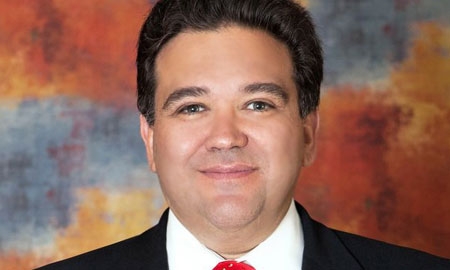What role will agribusiness play in Mexico's quest to become one of the major global economies?
Currently, agribusiness plays a key role in Mexico's development. We are one of the worldwide leading food producers. We compete with the best, but we must continue to bring more technology and adapt it to our fields.
Mexico has great potential for agriculture to be an important part of its development strategy; and the State of Sinaloa is the spearhead of this strategy, as it is the country’s major food producer. For many years, the size of our production was our strength. But not anymore, today Sinaloa has become America’s leader in healthy food production.
The issue now is not only how much we produce, but how we produce it. Sinaloa has an innovative way of telling the world that we have the best technology, we must be seen as food producers with zero toxic wastes; we don't use child labour, and we have a great approach towards social responsibility. And we know that by working together integrally Mexico will excel.
We must incorporate this technology to traditional harvesting. There are 8 million hectares of planted corn in Mexico, yet we still need to import corn, because we reap only 3.8 tons per hectare. Studies show that if we can increase our production up to 5 tons per hectare, we can achieve self-sufficiency. We need reforms, support and to raise awareness so the social side becomes more effective through culture, education and training. This is the path for agribusiness to achieve self-sufficiency, which will generate exports and income for the country.
How do you see the near future for the agriculture sector in Mexico?
We are learning. I think the issue is logistics, not the quality of the product. As soon as we find a way to get the food products to new markets, in a faster and cheaper manner, we will be more competitive, for the products and quality are already there. The large infrastructure projects now underway across the country will be very helpful. The rail system must be reactivated, which is a big challenge, of course. We need to improve the inland freight costs; they're very expensive and might have an impact on your competitiveness.
We must find new markets. Japan removing the Mexican tomato restrictions two years ago represents a new opportunity. We are also doing some testing on the logistics side to see how competitive we could be in the European market, competing against Morocco and Spain. We want to export to Germany and England, among others.
You are the largest sales logistics network, and the one with the largest number of technicians in the field.
That's right. We are recognized as the largest agricultural logistic network. One important thing is that 90 percent of our sales go straight to the farmer. There's no other Latin American company that does this. Most of them operate through sub-distribution networks. This is why our potential is so important. It is one of AIN´s added values.
We are contributing to Mexico's growth. We have evolved, we're no longer an agrochemical distributor as we were 10 years ago. We distribute high tech agricultural inputs for safe food production and sustainable agriculture. Everything we have achieved is the consequence of our work and our vision. Since the company’s foundation, the Board of Directors has guided us on a solid line, with a clear mission, a strong vision and a Code of Ethics.
How do you help producers and small farmers grow through your financial arm, Financiera Agricola del Norte?
There are small farmers that cannot get access to commercial loans, so we approach them through Financiera Agricola Del Norte, and help them get access to credit. We give them the inputs, technical training and resources to develop their agriculture. It is a fully integrated service which, together with our distribution network, makes us the most attractive solution. We make our technicians available to farmers, both big and small, and we train them in the available technologies so they apply it to their crops.
Through almost half a century of socio-economic development contribution, strategic alliances must have played a key role. What do you look for in a strategic partner?
First: affinity in our values. We've had experiences in which we want the same, but when values are different we have to split up. Second we look for target affinity. Then, there must be a business rationale, i.e. profitability. And finally we seek for mutual cooperation at every level. Good companies must join other good companies, so this positive effect is multiplied. This is what we have been trying to do.
What opportunities are there for British investors in the Mexican agribusiness?
There are many opportunities. Major research laboratories are in England, especially those related to postharvest, sanitization procedures, innocuousness, etc. We have been in talks with some British sanitization companies, because we know that there's where the technology is, either water treatments or irrigation systems. We are aware that clean water is one of the seven pillars of agriculture.
It is very important for British investors to know that besides Spain, Mexico is also an option. We have now the necessary technology for the production of safe food, zero waste products with Global Gap certification, which is currently required, not only as a trend, but for profit generation. We have also been in conversations with British supermarkets that have been interested in our Bai Technology, which manages sustainable agro production protocols. And this is precisely the kind of approach the final consumer is looking for when purchasing food. This is where we see a possible strategic alliance.

0 COMMENTS